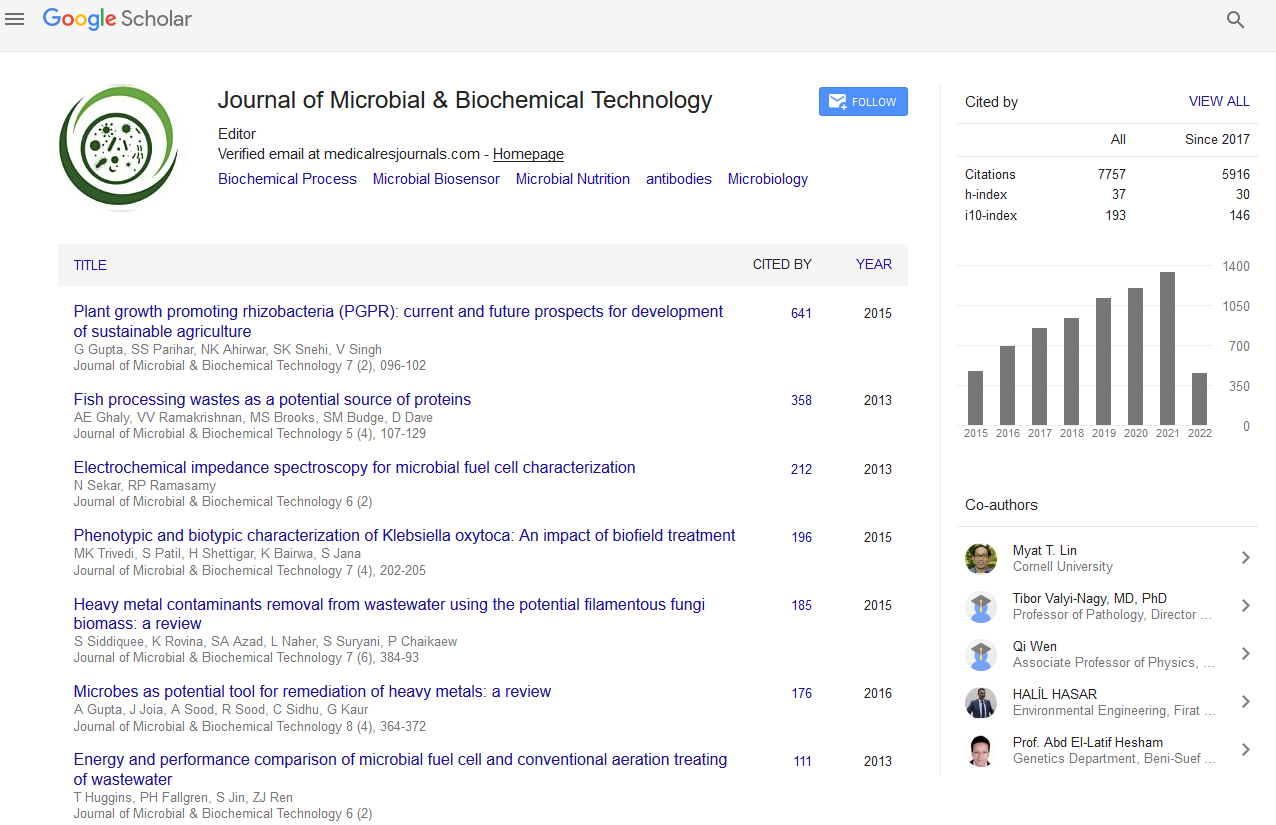PMC/PubMed Indexed Articles
Indexed In
- Academic Journals Database
- Genamics JournalSeek
- Academic Keys
- JournalTOCs
- China National Knowledge Infrastructure (CNKI)
- Scimago
- Access to Global Online Research in Agriculture (AGORA)
- Electronic Journals Library
- RefSeek
- Directory of Research Journal Indexing (DRJI)
- Hamdard University
- EBSCO A-Z
- OCLC- WorldCat
- SWB online catalog
- Virtual Library of Biology (vifabio)
- Publons
- MIAR
- University Grants Commission
- Geneva Foundation for Medical Education and Research
- Euro Pub
- Google Scholar
Useful Links
Share This Page
Journal Flyer

Open Access Journals
- Agri and Aquaculture
- Biochemistry
- Bioinformatics & Systems Biology
- Business & Management
- Chemistry
- Clinical Sciences
- Engineering
- Food & Nutrition
- General Science
- Genetics & Molecular Biology
- Immunology & Microbiology
- Medical Sciences
- Neuroscience & Psychology
- Nursing & Health Care
- Pharmaceutical Sciences
Abstract
Antibiotic Resistance Pattern of Escherichia coli and Klebsiella Species in Pakistan: A Brief Overview
Antibiotics kill or inhibit the replication of bacteria by different means, like emergence of resistance to these antibiotics is serious threat to health care system across the globe. Pathogens can attain drug resistance either by intrinsic mechanism or may be acquired due to selective pressure of a drug. Escherichia coli (E. coli) and Klebsiella specie (K. species) are the most common causative pathogens for most of the infections especially in countries with poor health care systems. Increase in extended-spectrum β-lactamases (ESBL) production in these microbes in recent years has led to limitations of treatment. Pakistan is also one of these countries with very low budget for health and per capta income. In Pakistan, majority of health care professionals prescribe antibiotic without testing the pathogen for antibiotic susceptibility. Long term utilization of antibiotics has contributed to greater resistance among pathogenic bacteria. The prevalence of such organisms has brought new challenges for the practitioners treating bacterial infections. The recent studies on the antibiotic resistance pattern of E. coli and K. species from Pakistan are summarized and data is showing that the emergence and rapid spread of multidrug resistance in these microbes are of great concern for future. There is an urgent need of community education for health care providers and general population regarding careful utilization of antibiotics.


